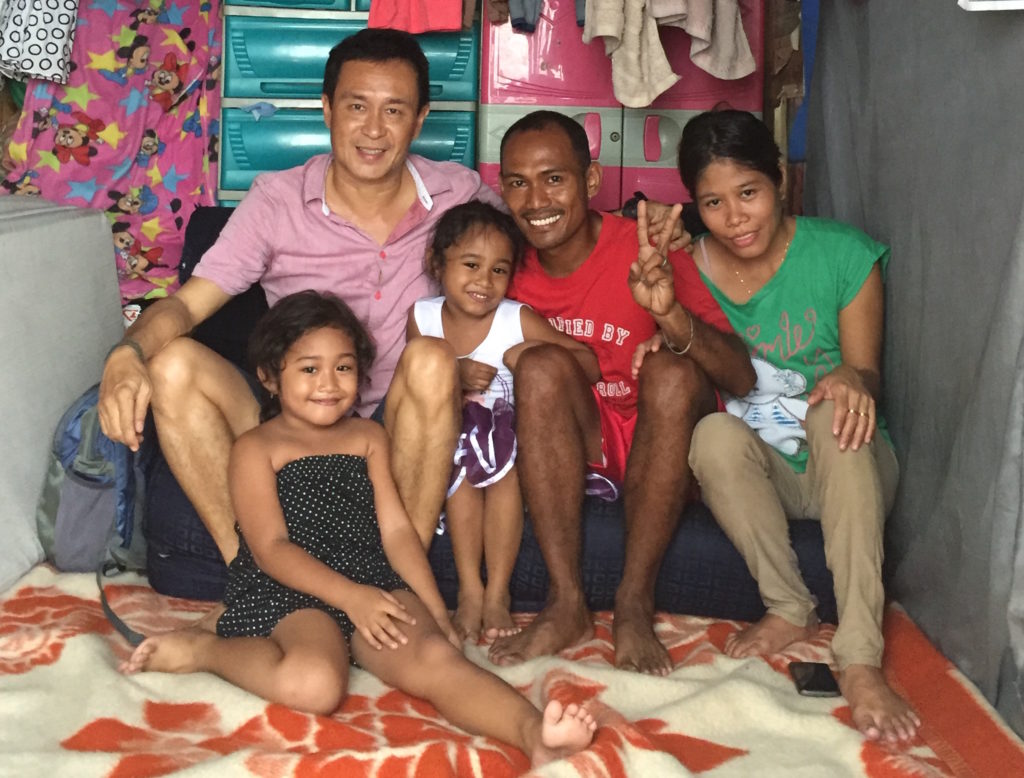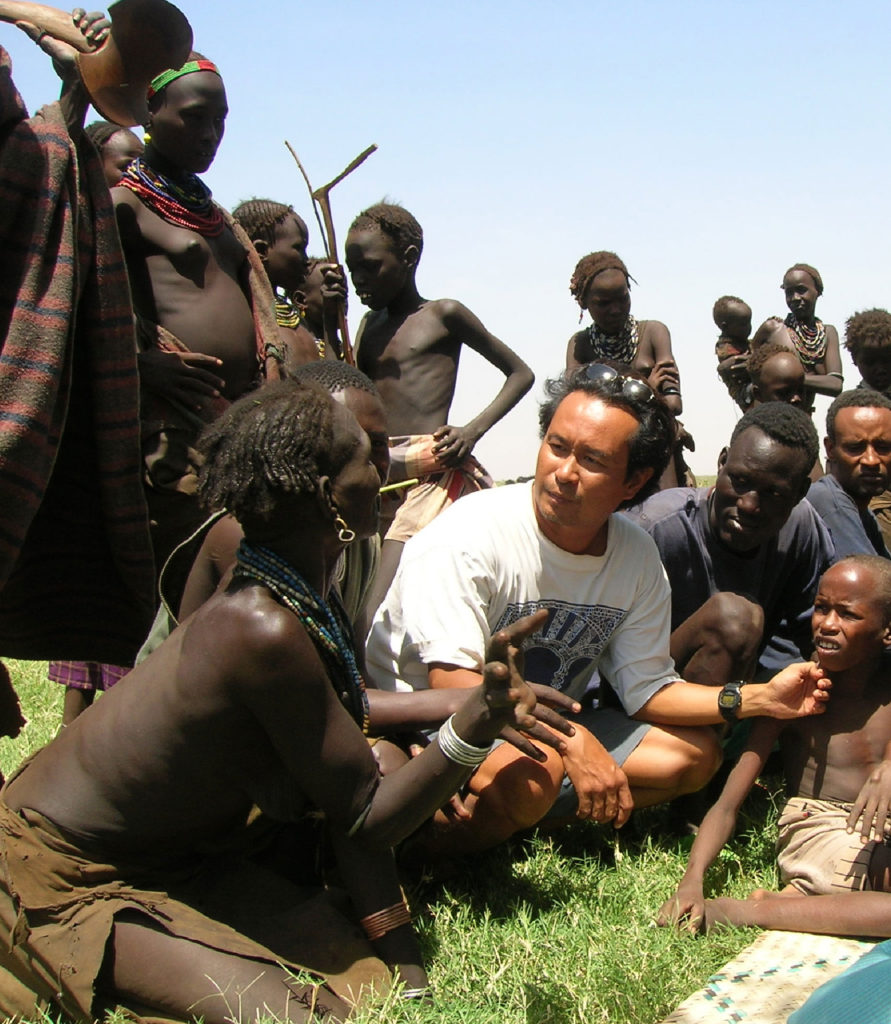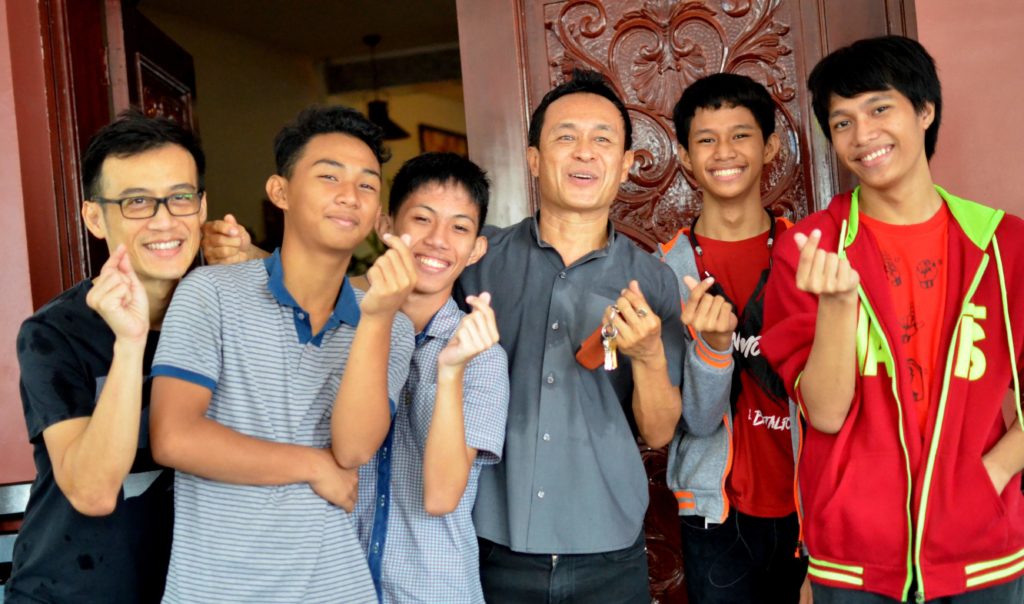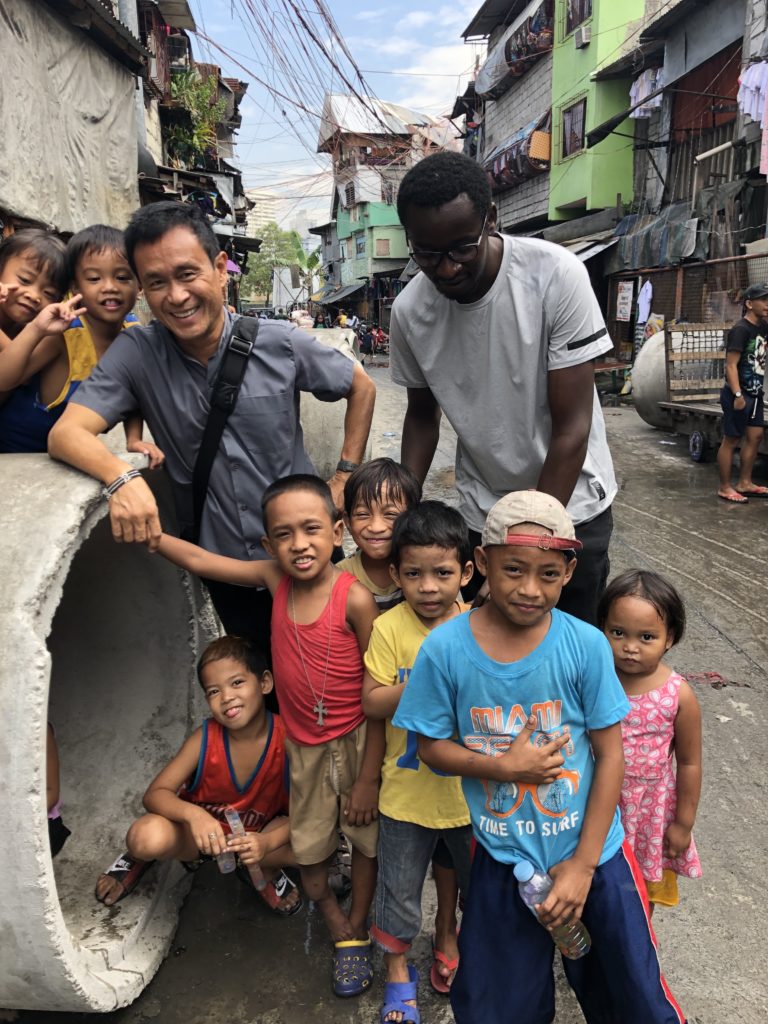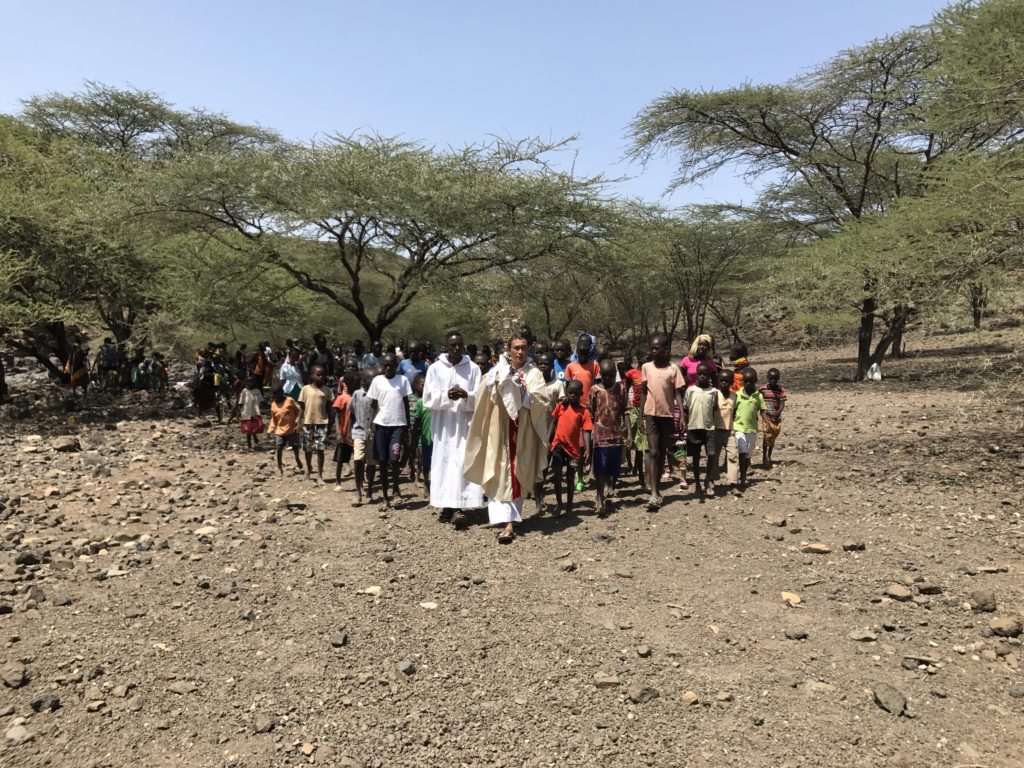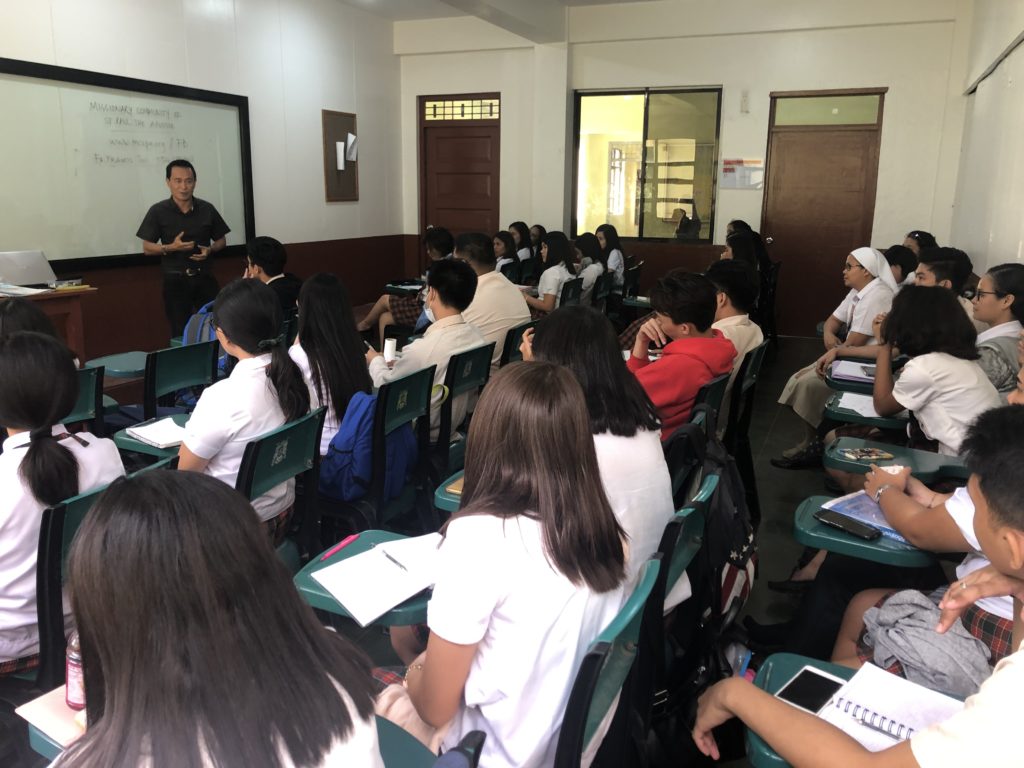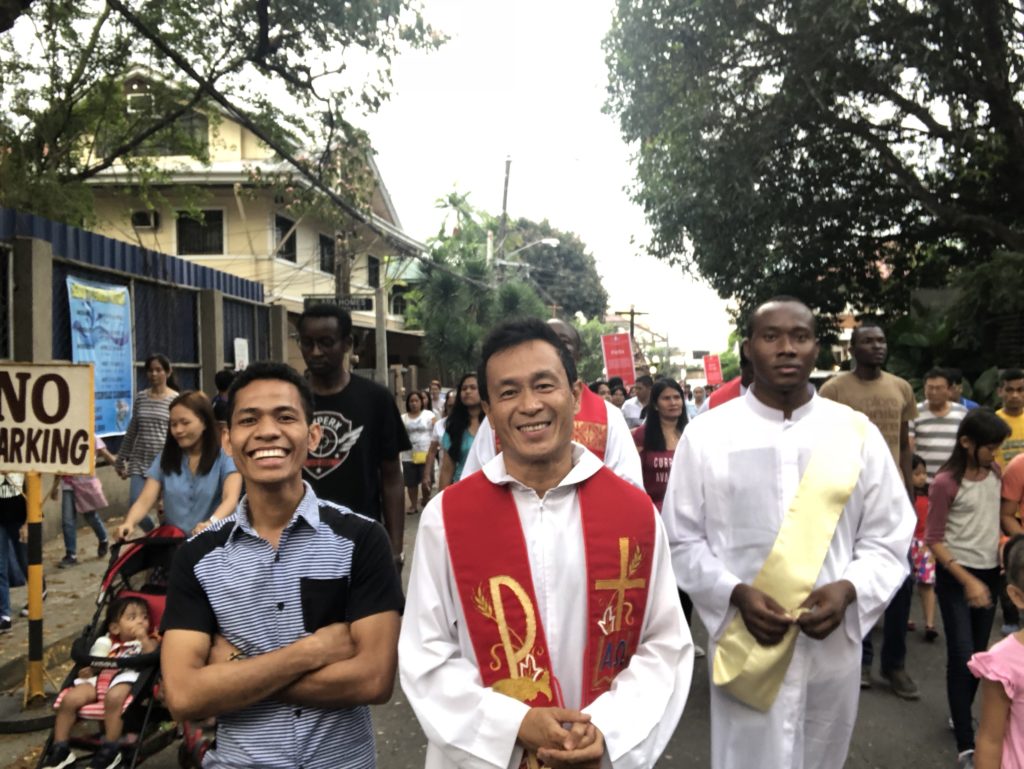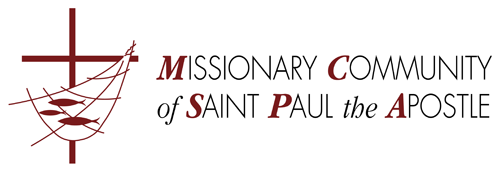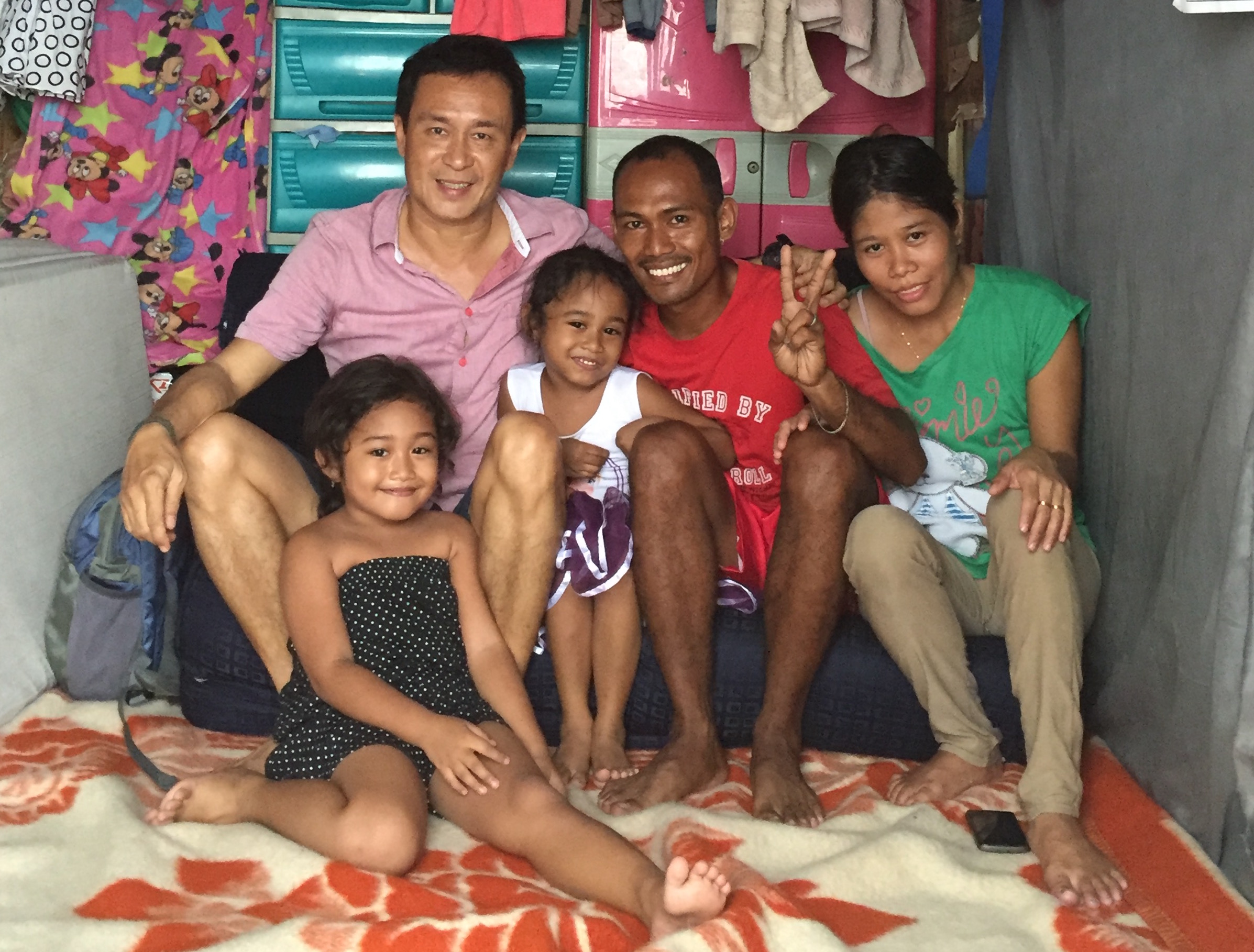I left my parents’ home in Malaysia when I was 14 years in order to go to study in Singapore. I got a scholarship from the government of Singapore and I eagerly left to live on my own in another country. One might say that I tried to live intensely … wanting to do as many things as possible, to try out and experience all things possible, to fall in and out of love, to question my religious beliefs and to test my relationship with God.
After Hwa Chong Junior College (senior high school for A-Levels), which was – and still is – one of the more prestigious educational institutions in Singapore, like several of my fellow classmates, I went on to read law at the National University of Singapore (N.U.S.). Again, I lived life intensely in the positive and negative senses! It was the two years at NUS that I entered into spiritual and emotional turmoil. It was a time of “disenchantment” with everything. In my first year holidays, I travelled to Turkey and spent a great deal of time there and hitch-hiked across Europe – times were so different then – from Diyarbakir in Eastern Turkey to Dingle in Ireland. Then the second year, I went alone to trek in the North West Frontier Province of Pakistan. I was opened to the world and its peoples. I found it hard to return to a life enclosed by four walls. The routine and the mundane killed my spirit. I questioned many things that I had taken for granted all my life – relationships, goals in life, God. I longed for the freedom and open spaces. I felt a great and deep emptiness in my life, and yet I could not put my finger as to what exactly it was. It depressed me, and made me lose interest in my studies and in the prospects of a life as a lawyer. I was 21 years old.
Then came the great famine in East Africa with Ethiopia being especially hit. Bob Geldof was mobilizing food relief with “Feed The World”. Even at the N.U.S. we did our part to raise funds to send to Ethiopia. Some of us from Law Faculty actually danced at a concert! While it was good to be doing something for a cause, I felt that it was insufficient … I had to do something more. What hit me most was the famous photo of the emaciated child with a vulture standing nearby.
It was then that I decided that I would travel to Africa. That second year of Law School was especially turbulent for me. I had almost lost all interest in studies. Instead I became more and more interested in Africa. I would spend hours in the libraries of the university, looking up books on Africa – its geography, politics, history, anthropology etc. I read widely and took notes of the countries on the continent. And I began to plan for a trip there.
Naturally, when the final exams for 2ndYear came, I failed impressively. All my friends extended their condolences, and my parents were devastated. But I lost just one night’s sleep because the next day, I decided with all clarity of mind and unity of purpose, that I would leave the university and go to Africa to discover something … what, I still did not know!
Then the movie The Mission hit the screens, and this moved me even more to question what I was doing with my life. How could I be content with what I had around me without doing anything for the many who had less. After I happily dropped out of the university, I went to help at the camp for the Vietnamese “Boat People” at Sembawang that existed then. I found deep satisfaction in that.
I realised that I had to earn money to sustain me if I were ever to make it to Africa. My father would not support me financially for obvious reasons. I had to give private tuition for many hours each day to earn and save the money I needed. I began to work out a plan: I would spend two years travelling across Africa and enter Europe through Spain and end up in Belgium to study journalism. And along the way, I would work as a volunteer at a mission for some months. It all sounded fantastic!
A close friend of mine was studying at the Royal College of Surgeons in Ireland at the time. At my request, she sent me a list of 23 missions in Africa that had some kind of health facility. Little did I know then that there were thousands of missions all over Africa! I wrote to all 23 and I was sure that they would be so keen to welcome a young man from Singapore to volunteer work there … but no one replied except one. It was the Bishop of Lodwar Diocese in Turkana in Kenya. I looked up the Collins Atlas that I had at home and “Lodwar” didn’t appear on the map of East Africa, and I thought, “This must be the place!” I still have this first letter from Bishop John Mahon, and I treasure it. He invited me over to visit Lodwar and to work at a mission called Lowarengak Catholic Mission in the north of the diocese on the border with Ethiopia. With that, I gave away everything I had; the few things that I thought were absolutely dear to me, I stashed away in a carton box. Thirty two years later, that box is still in the store of my parent’s home …
My parents were concerned about me – where was I heading to, existentially and professionally? What future was I carving out from all this? They tried to advice and guide; they never pushed. They weren’t happy with my decision to leave the N.U.S. and go to Africa. There were so many reasons for objecting: a dismal prospect for the future; the dangers of traveling to and in Africa; all that wasted time etc. But when they saw that I was adamant, I think they realised that I needed the time to seek.
I bought a large map of Africa, framed it and hung it up on the wall at their home so that they would be able to follow my movement across Africa, so I figured. I left Malaysia and Singapore in 1987 and went Europe, then to Cairo and finally into Nairobi, the capital city of Kenya.
Throughout this initial part of the trip, I was alone but I never felt lonely. I missed my family but not my former life. I looked forward to the unknown in Africa with my whole heart and embraced each day and the surprises that it brought. I kept my parents updated about my movements. Phone calls were expensive. I had to write long letters and send it to them by snail mail! In those days, I could only receive mail from them by “post restante” at local post offices of cities where I passed by. My dad, I learnt many years later, looked forward to news from me, and he studied every word and every sentence carefully so as to glean a clearer picture of the circumstances that were shaping his son’s life. And my mother, I knew, kept praying for me throughout.
From Nairobi, I went up to the Turkana region about 1,000 km away to the north. Turkana land is a semi-desert into which I first entered hitching a ride on a lorry that was filled to the top with sacks of maize and beans. I was perched above those sacks together with a traditional Turkana man (dressed only with a blanket and a headgear with feathers) and his family – they were the first Turkanas I met. I still recall, as the lorry made its way across the yellow plains of Turkana dotted with scrub and thorn trees towards Lodwar town, the freedom and happiness in my heart because at last I was moving along in my dream to be in Africa.
I have never for a single moment regretted my decision to go to Africa, to chose a different path, to make that total change in my life. I could not and still cannot imagine how my life would have been if I had not dared take those steps.
When I reached Lodwar, I made my way to “the Diocese” which was the hill where the bishop lived and the diocesan offices were located. It was the center of much activity as the Church was a key player in the relief effort and development work in Turkana ever since the 1960s. Bishop John Mahon, an Irish missonary, was a pioneer missionary to Turkana. He was surprised to see me standing in front of his door that day in December of 1987 – never in his wildest dreams did he envisage a young man from Malaysia actually making his way there.
I was even more surprised at our first meeting: the good bishop was in shorts and boots, and constantly surrounded by children and workers. He was a canon lawyer by training and also a builder. All over Turkana, Bishop Mahon personally built schools, dispensaries, a hospital, churches, convents … In him, I learnt that Christ was to be found in the person, and not in all the laws and regulations and restrictions. We have so many of those in the Catholic Church that even a Pharisee would be proud!
Bishop Mahon’s favourite verse from Scripture was Luke 4, the part when Jesus reads quoting Isaiah: “The Spirit of the Lord is upon me, because he has anointed me to proclaim the good news to the poor. He has sent me to proclaim liberty to the captives and recovering of sight to the blind, to set at liberty those who are oppressed, to proclaim the year of the Lord’s favour.”
He did this literally: feeding the hungry, educating the downtrodden, giving work to those bowed down, building a hospital to cure the sick and a school for the blind … I learnt that the gospels were not just mere words! Action was needed too!
After our first meeting in Lodwar, in December 1987, Bishop Mahon asked me to go to the mission of Lowarengak in the north. There was no public transport there – these were extremely remote places then and still are to this day. So I got a lift on a diocesan lorry bringing relief food to Lowarengak village. There, I met for the first time a Spanish woman who turned out to be a nurse belonging to a group of missionaries from Spain. Cecilia Puig and other members of the lay community were very welcoming, and I felt at home with them instantly. It was my first contact with persons who would eventually become known as the Missionary Community of St. Paul the Apostle.
I accompanied them on their mobile clinics around and talked extensively about many things. Those conversations planted the seed of a vocation in me. A few months later, I met the priest who started this community, Fr. Francisco Andreo. People called him Fr. Paco or simply, Paco, as he prefered to be called.
Paco was never indifferent to the needs and suffering of others. He moved those around him to find solutions to situations of need that other persons were in, to solve problems. And Paco constantly called others to leave everything behind and to follow a life of service. And I was included in that invitation which he made so passionately and intensely such that I couldn’t say no! But it was an acceptance that matured and grew more profound with time. It was through Paco that I began to understand the gospels, life in a community and as a family. I began to get a glimpse of what being a priest and a missionary was all about, but this understanding had to be deepened and widened with time. I was 24 years old then and already I had been drawn into a life of caring for others – the children, the hungry, the sick, the elderly, the youth – and looking after them from head to toe.
And thus I began to live my life as a missionary with the Missionary Community of St. Paul the Apostle. Paco couldn’t stand to see a hungry child, and so all the day’s events and life in the mission was to see how there would be food – how to produce, to cultivate, to rear and grow … fruit, crops, animals. We needed water in that semi-arid land, and so we worked to drill boreholes, build dams … All this taught us to work to provide for the people who were thirsty and hungry. And thus our missions developed into centres of agricultural production, and water resource development.
Life was not easy, certainly. Conditions were harsh, back-breaking almost. Those were the early days when we were just establishing the missions, setting things up. Everything was a challenge … even making a phone call! But I took it all in and enjoyed life – the people, the work, the challenges, community life, the discovery of the gospels in relation to my daily life. It was like “a revelation to the Gentiles”!
I realised much later that my parents would object and oppose certain decisions of mine, but when they saw that I was certain of my decision, then they would relent. That I wanted to live in Africa already meant too many uncertainties for my parents, especially my late father. Now, their son wanted to be a priest IN AFRICA … goodness, that was too much!
I remember my father pleading with me, “Be a priest here!” But I argued that my roots were in Turkana; that I discovered my vocation there with this Community, in the milieu of the Turkana landscape and people, and under the Bishop of Lodwar. I could not cut off my roots and be transplanted elsewhere!
When I was ordained a priest, my dad was with a full-blown cancer of the bone, and my mother had to remain at home to look after him. They could not attend my ordination which was on August 15th, 1997, at Nairobi, Kenya. I was ordained together with Antonio and Manolo. A month before my dad passed away, my sister called me to say that his condition was worsening. But I still did not think it was necessary to return. However Paco insisted that I leave immediately and go to take care of my father. I did so and spent a couple of weeks in the hospital with my dad. One night, I noticed that he got out of bed slowly and with great difficulty and shuffled towards the mirror. He looked at himself in the mirror and then shuffled slowly back to the bed. I asked him if he was alright. But he ignored my question and delved into something more profound. Seated on the edge of the hospital bed, he said, “Son, if I had to live my life all over again, I would be a priest like you …” I was moved and tears welled up in my eyes. I muttered, “If you did so, then I wouldn’t exist”! And he went on to say that now that he was at the end of his life, he could look back and see that all that one has done has been in vain … except the good that one does. To me, that was a confirmation that my father was truly happy and accepted my decision to be a priest in Africa. When he died in August 1999, my father’s funeral was the first I ever officiated as a priest.
Since 2012, I have been in Manila, Philippines, where we have set up our formation house. We have our seminarians and priests studying there in preparation for work in Africa. As they follow their study programmes in philosophy and theology and other civil studies, they also help out with livelihood programmes at the Parola and Payatas slums, and with children and families from a nearby slum area.
I am very grateful to God for many, many things in my life. If I had to live it all over again, I would go through the same thing with the same people! If I love this life of mine, then I have to be grateful to my parents, who gave me life. I am thankful for this wider family that is the Missionary Community of St. Paul the Apostle that Paco began and which God placed before me. I am totally grateful for His gift of the priesthood to me – there has not been a single moment in these last 22 years as a priest when I regreted this important decision in my life. There have been difficult and trying moments, but never any doubt at all that this has been and is the way and the life for me. I thank God for the younger men and women whom I had invited to follow in this life as a missionary … Lillian, Brian, Ambrose, Timothy, Stephen and others; they have been a source of anxiety but also great joy in their journey of being formed into women and men to serve those on the fringe of society. I am thankful for the many persons and events that God placed in my path and which have helped mould me.
The greatest lesson which I have learnt from this life with the poor and marginalised, I think, must be the indomitable human spirit to survive, to improve and to push on despite all the odds. They teach me not to take life – and all that comes with it – for granted. It made – and continues to make – me question why some people have it all and others nothing at all. What is clear also is the amount of good that can be achieved when there is goodwill and hardwork, when each of us brings his or her 5 loaves and 2 fish. And there is no doubt about the deep and existential joy that we find in doing good for others.
Francis Teo Kian Seng, MCSPA
